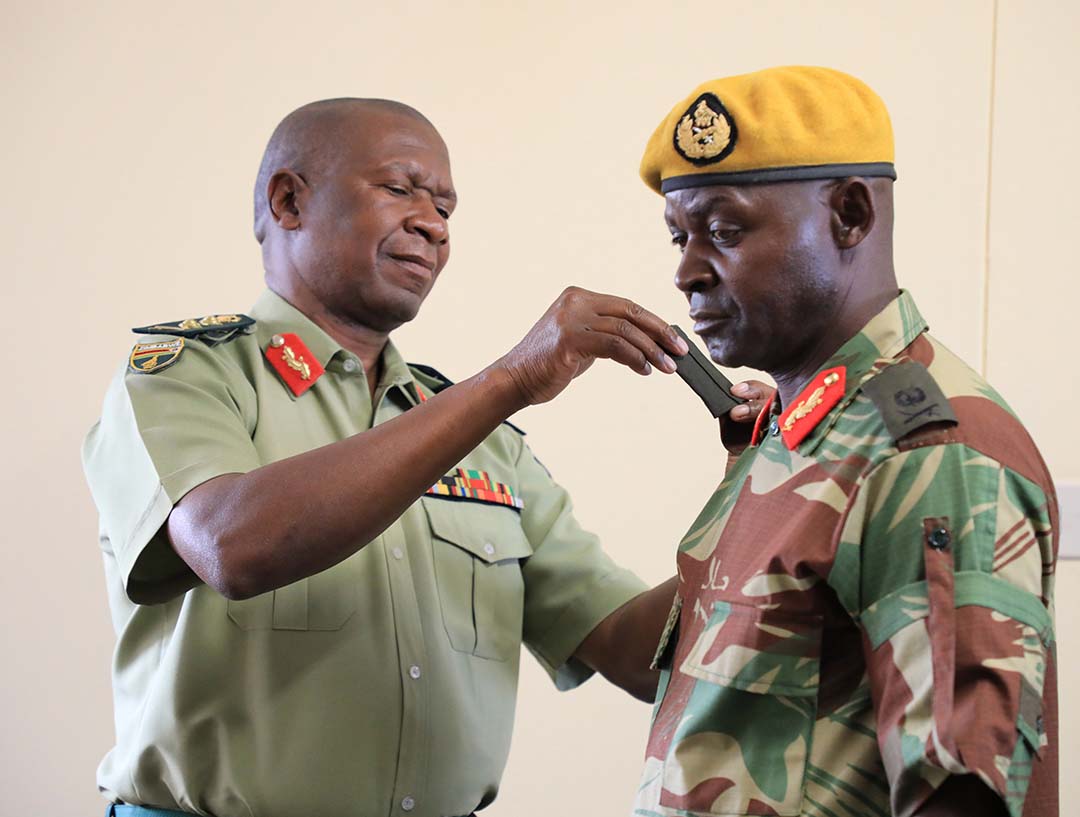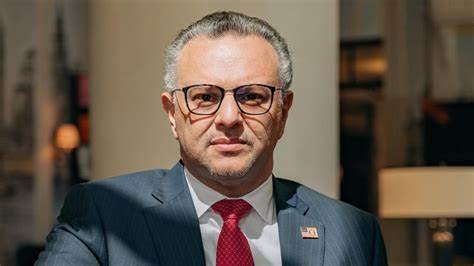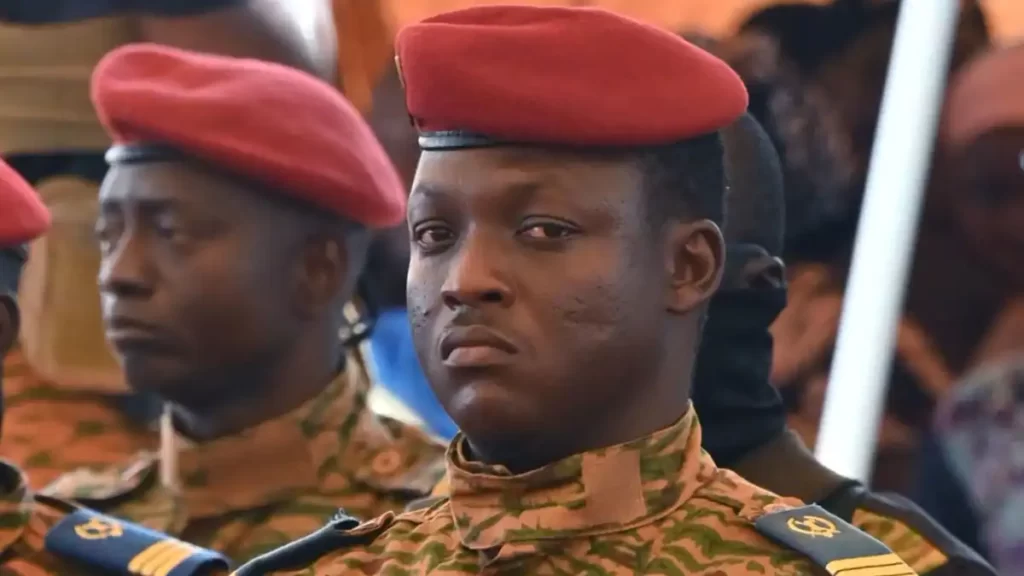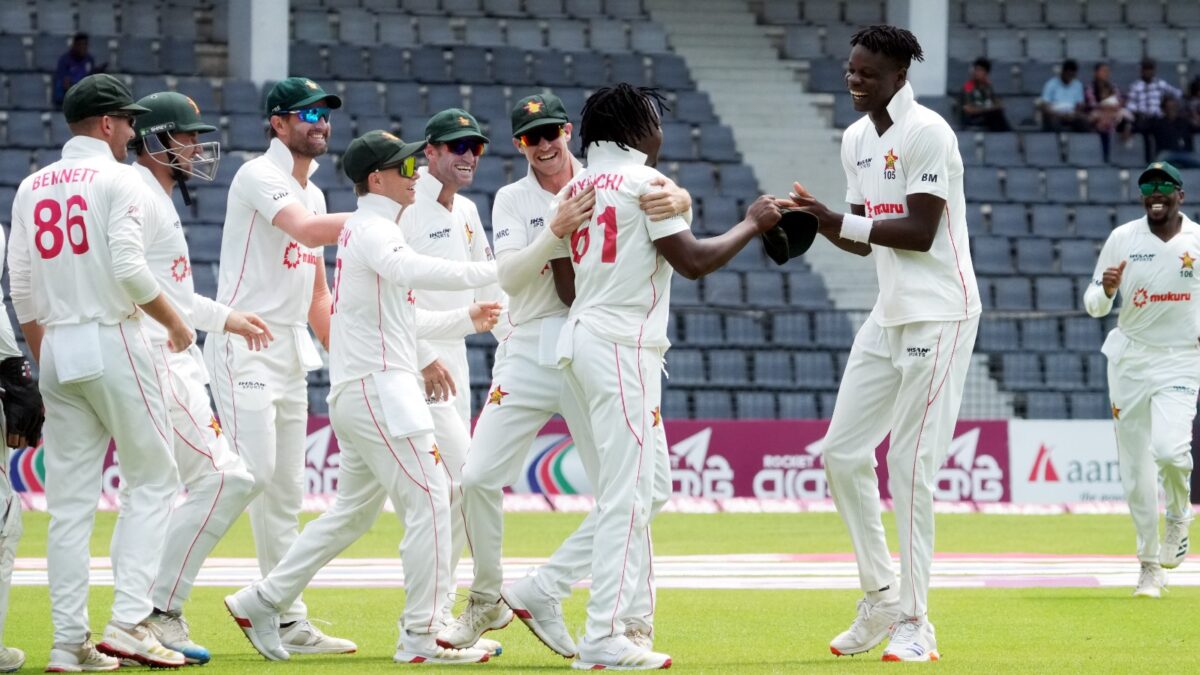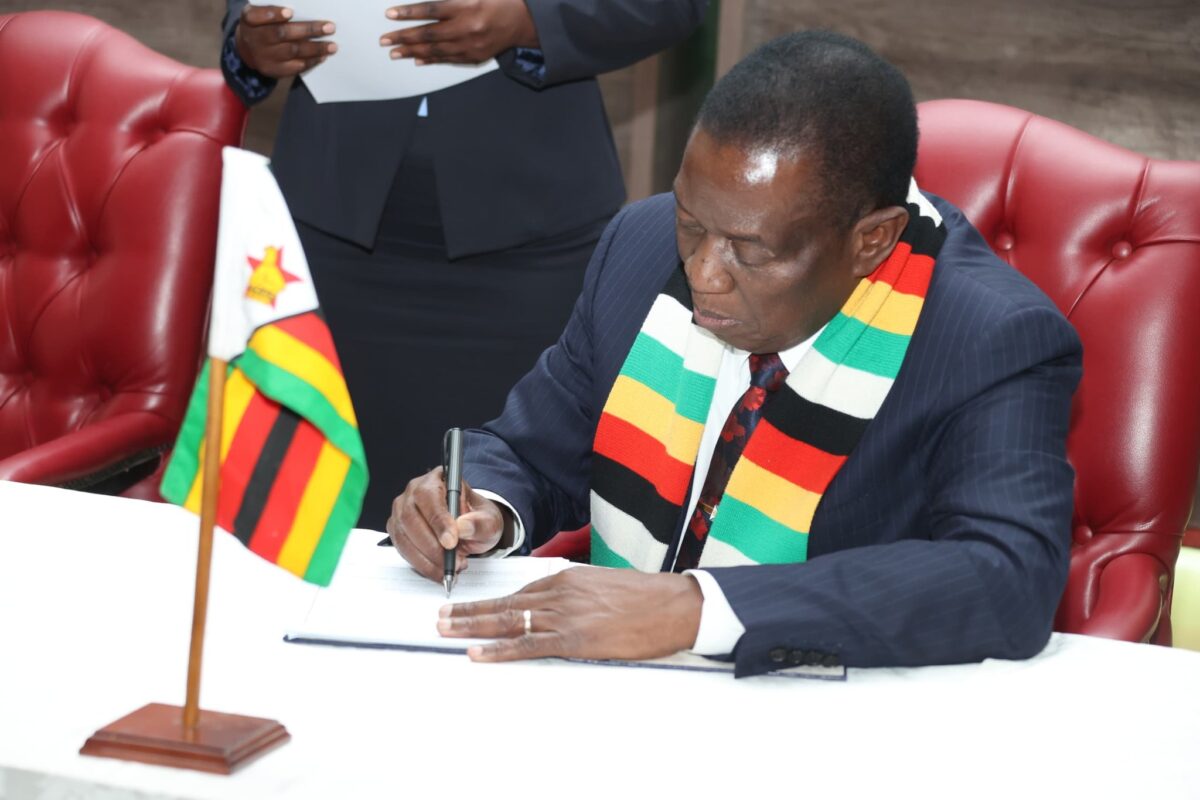HARARE – President Emmerson Mnangagwa moved on Monday to consolidate his control of the military by retiring four top generals.
Former Presidential Guard commander Major General Anselem Sanyatwe, the man who commanded the military slaughter of six people during post-election protests on August 1 last year, is being retired to join the diplomatic service, the presidency announced.
Joining him into forced retirement are Major Generals Douglas Nyikayaramba, Martin Chedondo and Air Vice Marshal Sheba Shumbayawonda.
Former minister Jonathan Moyo said Mnangagwa was using the absence of his powerful deputy, the former Zimbabwe Defence Forces Commander Constantino Chiwenga, to “ring out system-wide changes in the military”.
“These are seismic military retirements. The politics of the strategy at play are naked,” Moyo said.
Mnangagwa, who was ushered into power through a military coup that ousted former President Robert Mugabe in November 2017, is set to replace the generals with his loyalists.
Vice President Chiwenga, currently receiving treatment in India for an undisclosed ailment, harbours ambitions to succeed Mnangagwa. In January, reports emerged of a military-backed attempt to impeach Mnangagwa who was at the time on a tour of Eastern Europe.
Major General Nyikayaramba is a former Mugabe loyalist while Major General Sanyatwe, who was recently promoted before being assigned to oversee the government’s Command Agriculture programme, is known to have been Chiwenga’s closest ally in the military.
Moyo, who tweeted news of the military shake-up even before the official announcement was made, said Mnangagwa had told Sanyatwe that he was being sent to Tanzania as ambassador, but Sanyatwe was “resisting”.
The presidency did not say where the generals are being deployed. A statement, signed by Cabinet Secretary Misheck Sibanda, only said they had been retired and reassigned to the diplomatic service “in line with the government’s critical global engagement and re-engagement strategy.”
It is not clear if Chiwenga approves of the changes. Brezhnev Malaba, the assistant editor of the privately owned Zimbabwe Independent newspaper said it was evident that the move was aimed at eroding Chiwenga’s remaining influence in the military.
“It’s part of Mnangagwa’s calculus to outflank internal Zanu PF resistance to his controversial rule and to consolidate power,” he said.
Meanwhile, Moyo revealed that Brigadier General Fidelis Mhonda, the man who led the brutal army crackdown in the wake of Mugabe’s first round defeat in the March 2008 elections to MDC leader Morgan Tsvangirai is the new commander of the Presidential Guard.
Mhonda, then a colonel, led ‘Operation Mavotera Papi’ (Who Did You Vote For) which left over 200 MDC activists dead or missing. He will be deputised by Colonel Never Makuyana, who until recently was Mnangagwa’s army aide de-camp.
The Daily News reported on Sunday that Mnangagwa had made wholesale changes to his close security by replacing army bodyguards who have been by his side since the 2017 coup with new, suited, guards. The new team also includes members of the Air Force of Zimbabwe.
Under Mugabe, the Police Protection Unit (PPU) provided the country’s top leaders with aide de-camps, but they were considered untrustworthy when the military staged the coup.
Mnangagwa has also added elaborate security measures and protocols which were evident last week at a State House function for diplomats.
Apart from going through body scanners, his own staff — including all security details — now also have to pass the test of sniffer dogs, which have been introduced to vet people around him.
At his rallies, Mnangagwa’s security team has also lately introduced fences and barriers to keep the party’s supporters as far away from their leader as possible. This was adopted after a grenade attack during a rally in Bulawayo in June last year which missed him by a few seconds.
Over and above this, the government has also introduced other advanced security measures, including the use of drones at political rallies to protect the increasingly paranoid Mnangagwa.

